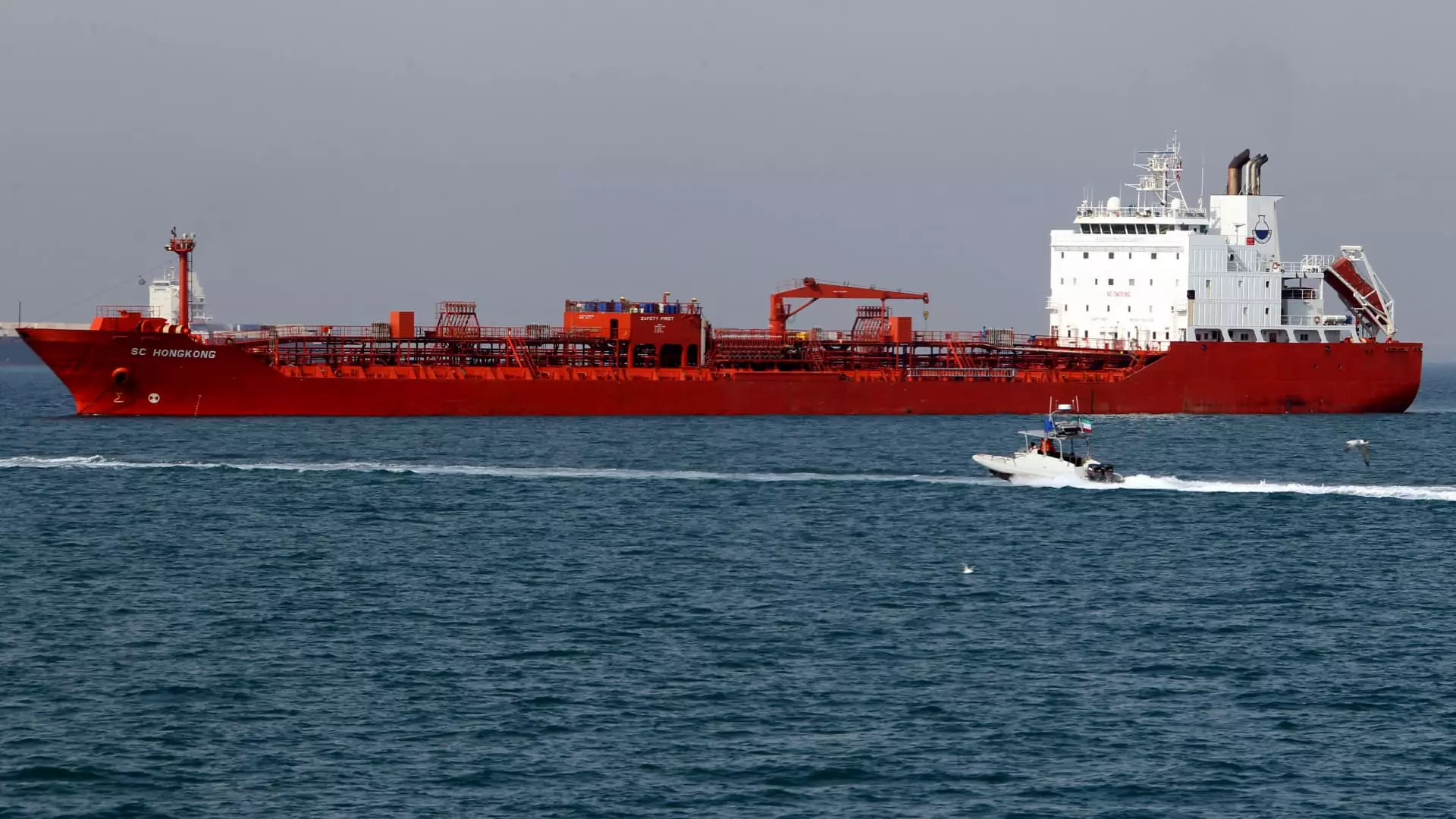The recent plunge in oil prices, following President Trump’s unprecedented allowance for China to purchase oil from Iran, underscores the volatile intersection of geopolitics and global markets. The Brent crude benchmark dropped by over $4 in a matter of hours, reflecting a staggering 5.68% decline. U.S. crude faced a similar fate, falling nearly $4. In just a blink of an eye, the oil market—a bastion of stability for decades—has become a playground for erratic political moves, leaving investors jittery about the future of global energy security.
Trump’s assertions on his social media platform, Truth Social, have been the most recent catalyst in this unfolding drama. By suggesting that China can resume its Iranian oil purchases, Trump appears to signal a significant shift in his administration’s long-standing “maximum pressure” approach. This sudden pivot raises serious questions about the coherence of U.S. foreign policy and its troubling implications for global energy markets. Are we truly willing to gamble with the integrity of oil supply security just to satiate political whims?
The Repercussions of a Precarious Ceasefire
The broader implications of this political maneuvering are alarming. Following a ceasefire between Israel and Iran, there had been a flicker of hope that a lengthy conflict might, at least temporarily, cool the fiery tensions in the Middle East. Yet, Trump’s remarks about Iran’s nuclear capabilities coupled with a harsh rebuke of Israel’s actions only serve to exacerbate an already delicate situation. The president, while demanding adherence to the ceasefire, used an unusual tone of resentment towards both nations, querying, “I’m not happy with Israel… but I’m really unhappy if Israel continues its bombing campaign.”
Such rhetoric is reckless. It appears to lack a foundational strategy, merely thrusting oil prices into freefall and inviting speculation about how this will ultimately impact U.S. relations in the region. Investors are now left weighing the uncertainties of whether Iran will retaliate by stifling oil exports or if heightened aggressiveness from Israel could ignite an upheaval that risks choking the vital Strait of Hormuz. The very corridor that funnels 20% of the world’s crude is now a point of potential disaster, thanks to ill-considered political gamesmanship.
The Economic Ramifications of Imbalance
As financial markets react with fear-driven volatility, it is essential to consider the economic repercussions of a destabilized oil market. With investor confidence faltering, countries reliant on consistent oil prices face mounting pressure. The economic stakes are extraordinarily high; oil serves as the lifeblood for countless economies, a pivotal factor in everything from transportation costs to the prices consumers see at the pump.
Trump has positioned the U.S. in a complicated and potentially damaging dilemma: on one hand, he needs to appease domestic audiences with lower fuel prices, while on the other, he risks alienating traditional allies in the West and the Middle East. This delicate balancing act can only sustain itself for so long before one side collapses under pressure. Should prices continue on this downward trajectory, it could lead to a global economic shift, giving rising powers, namely China, an even stronger foothold in crucial markets.
The Perils of Short-Sighted Policies
It’s evident that Trump has taken a calculated risk aimed at appeasing China while attempting to stabilize oil prices. What’s overlooked here is the potential long-term damage this approach can inflict on international relations and U.S. credibility. Political leaders must consider the legacy they wish to leave behind. The repercussions of a quickly executed deal can unravel years of meticulous diplomatic work.
Short-sighted policies that seem favorable in the moment could lead to disastrous long-term ramifications. Trump’s administration might argue that it’s a win for energy consumers, but such myopia ignores the looming specter of geopolitical instability. History teaches us that the oil market does not react well to signals of instability. Leaders must navigate these complex waters with a level of foresight that appears sorely lacking at this moment.
The intersection of crude oil markets and global politics has never felt more precarious than it does today, and the stakes could not be higher. In an era marked by strategic errors and fleeting victories, we are all left to wonder: can we trust our leaders to prioritize stability over immediate political gain?


Leave a Reply